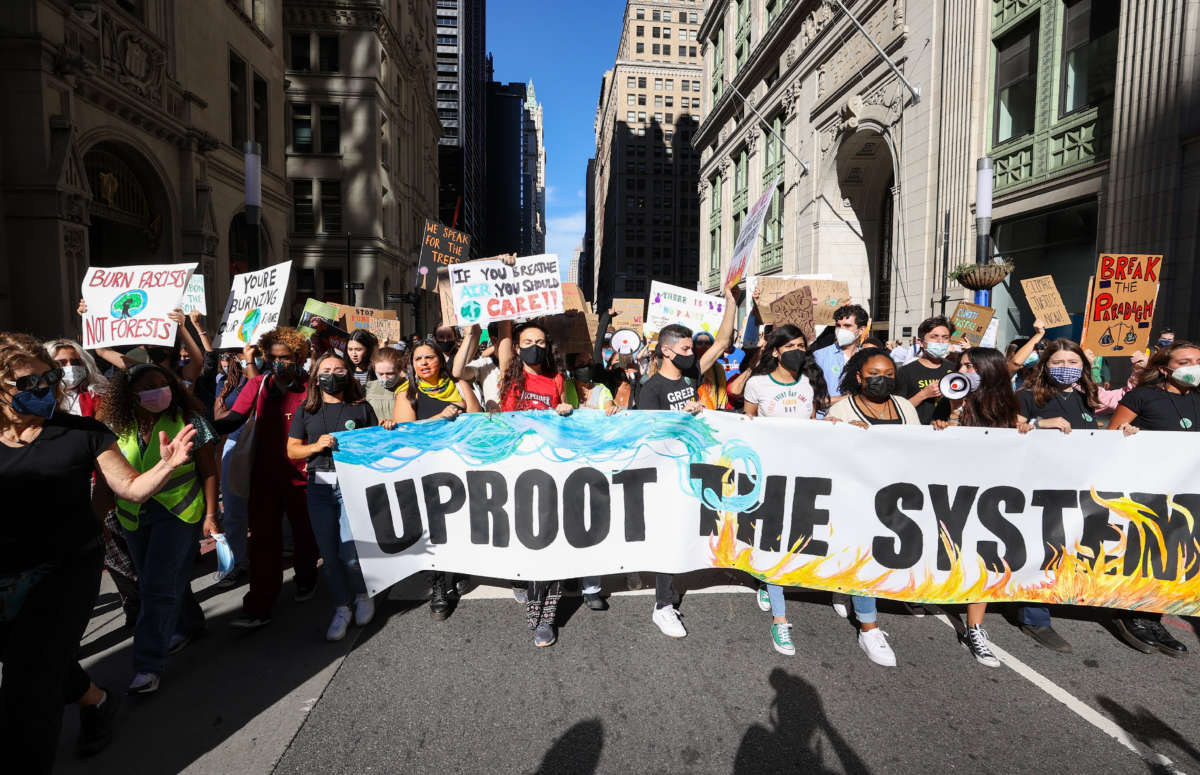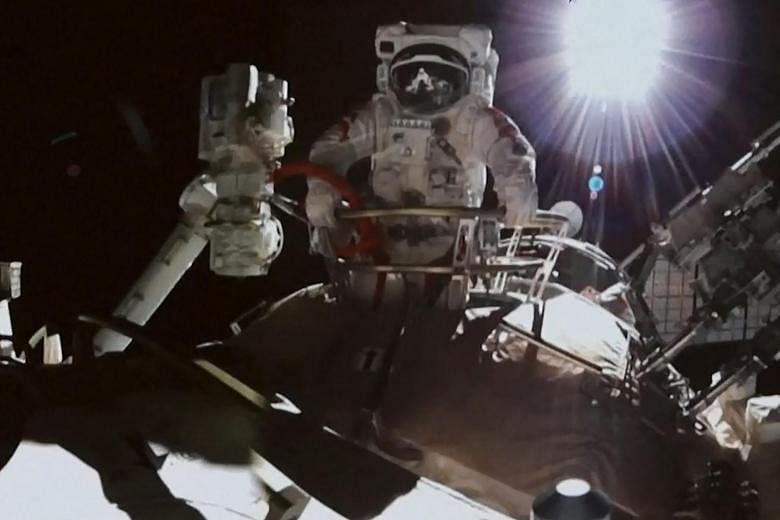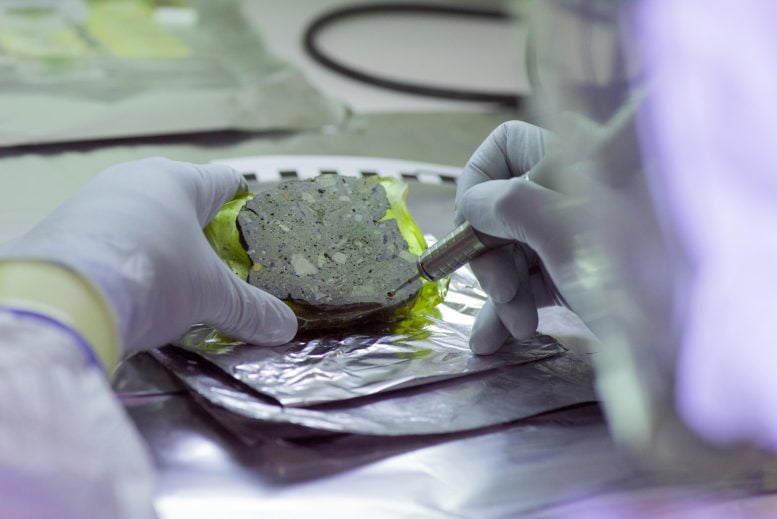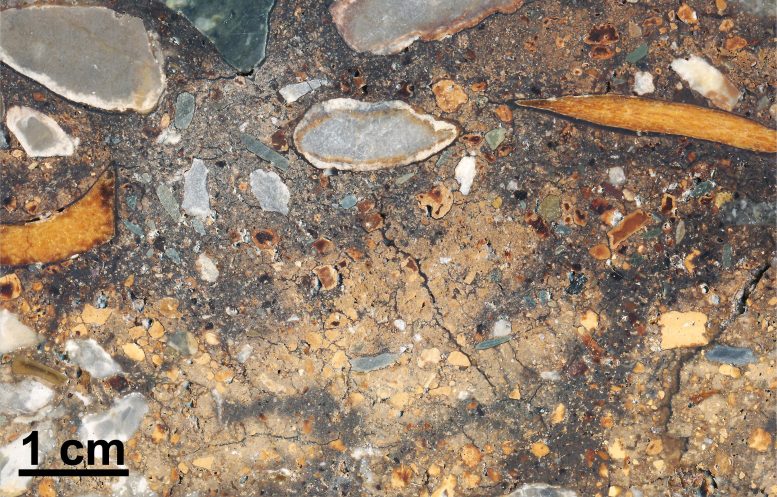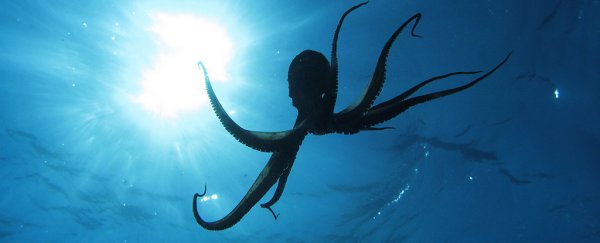December 27, 2021
Careerists and Democratic Party apparatchiks successfully leverage corporate money and backing to seize and deform historic rights organizations into appendages of the ruling class.
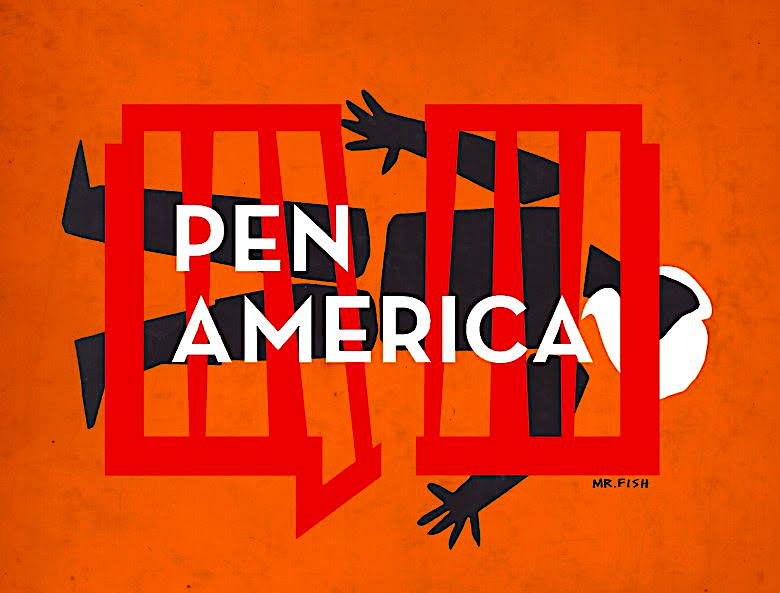
Original by Mr. Fish for ScheerPost.
By Chris Hedges
ScheerPost.com

Those in power, as Noam Chomsky points out, divide the world into “worthy” and “unworthy” victims. They weep crocodile tears over the plight of Uyghur Muslims persecuted in China while demonizing and slaughtering Muslims in the Middle East. They decry press censorship in hostile states and collude with the press censorship and algorithms emanating from Silicon Valley in the United States.
It is an old and insidious game, one practiced not to promote human rights or press freedom but to envelop these courtiers to power in a sanctimonious and cloying self-righteousness. PEN America can’t say the words “Belarus,” “Myanmar” or the Chinese tennis star “Peng Shuai” fast enough, while all but ignoring the most egregious assault on press freedom in our lifetime.
PEN America only stopped accepting funding from the Israeli government, which routinely censors and jails Palestinian journalists and writers in Israel and the occupied West Bank, for the literary group’s annual World Voices festival in New York in 2017 when more than 250 writers, poets and publishers, many members of PEN, signed an appeal calling on the CEO of PEN America, Suzanne Nossel, to end PEN America’s partnership with the Israeli government. The signatories included Wallace Shawn, Alice Walker, Eileen Myles, Louis Erdrich, Russel Banks, Cornel West, Junot Díaz and Viet Thanh Nguyen.
To stand up for Assange comes with a cost, as all moral imperatives do. And this is a cost the careerists and Democratic Party apparatchiks, who leverage corporate money and corporate backing to seize and deform these organizations into appendages of the ruling class, do not intend to pay.
PEN America is typical of the establishment hijacking of an organization that was founded and once run by writers, some of whom, including Susan Sontag and Norman Mailer, I knew. Nossel is a former corporate lawyer, listed as a “contributor” to The Federalist Society, who worked for McKinsey & Company and as vice president of U.S. Business Development for Bertelsmann.
Support CN’s Winter Fund Drive!
Nossel, who has had herself elevated to the position of the CEO of PEN America, also worked under Hillary Clinton in the State Department, including on the task force assigned to respond to the WikiLeaks revelations.
I withdrew from a scheduled speaking event at the 2013 World Voices Festival in New York City and resigned from the organization, which that same year had given me its First Amendment Award, to protest Nossel’s appointment. PEN Canada offered me membership which I accepted.
Nossel and PEN America have stated that the prosecution of Assange raises “grave concerns” about press freedom and lauded the decision by a British court in January 2012 not to extradite Assange. Should Nossel and PEN America have not taken this stance on Assange it would have left them in opposition to most PEN organizations around the world. PEN Centre Germany, for example, made Assange an honorary member. PEN International has called for all charges to be dropped against Assange.
Smears Repeated

Suzanne Nossel. (Wikipedia)
But Nossel, at the same time, repeats every slanderous trope and lie used to discredit the WikiLeaks publisher facing extradition to the United States to potentially serve a 175-year sentence under the Espionage Act. She refuses to acknowledge that Assange is being persecuted because he carried out the most basic and important role of any publisher, making public documents that expose the multitudinous crimes and lies of empire.
And I have not seen any direct appeals to the Biden administration on Assange’s behalf from PEN America. “Whether Assange is a journalist or WikiLeaks qualifies as a press outlet is immaterial to the counts set out here,” Nossel said. But, as a lawyer who was a member of the State Department task force that responded to the WikiLeaks revelations, she understands it is not immaterial.
The core argument behind the U.S. effort to extradite Assange revolves around denying him the status of a publisher or a journalist and denying WikiLeaks the status of a press publication. Nossel parrots the litany of false charges leveled against Assange including that he endangered lives by not redacting documents, hacked into a government computer and meddled in the 2016 elections, all key points in the government’s case against Assange.
PEN America under her direction has sent out news briefs with headlines such as: “Security Reports Reveal How Assange Turned an Embassy into a Command Post for Election Meddling.” The end result is that PEN America is helping to uncoil the rope to string up the WikiLeaks publisher, a gross betrayal of the core mission of PEN.
“There are some things Assange did in this case, or is alleged to have done, that go beyond what a mainstream news outlet would do, in particular the first indictment that was brought about five weeks ago focused specifically on this charge of computer hacking, hacking into a password to get beyond the government national security infrastructure and penetrate and allow Chelsea Manning to pass through all of these documents. That, I think you can say, is not what a mainstream news outlet or a journalist would do,” Nossel said on The Brian Lehrer Show on WNYC on May 28, 2019.
But Nossel did not stop there, going on to defend the legitimacy of the U.S. campaign to extradite Assange, although Assange is not a U.S. citizen and WikiLeaks is not a U.S. based publication. Most importantly, left unmentioned by Nossel, is that Assange has not committed any crimes.
“The reason that this indictment is coming down now is because Assange has been holed up in the Ecuadorean Embassy in London for years trying to escape his extradition request,” she said on the program.
“He faces an extradition request to Sweden where he has been charged with sexual assault and now this huge indictment here in the U.S. and that proceeding will play out over a long period. He will make all sorts of arguments about why he faces a form of legal jeopardy that should immunize him from being extradited, but there are extradition treaties. There are legal assistance treaties where countries are able to prosecute nationals of other countries and bring them back to face charges when they have committed a crime. This is happening pursuant to that. There are U.S. nationals who are charged and convicted in foreign courts.” [Assange was never charged in Sweden.]
WikiLeaks released U.S. military war logs from Afghanistan and Iraq, a cache of 250,000 diplomatic cables and 800 Guantanamo Bay detainee assessment briefs along with the 2007 “Collateral Murder” video, in which U.S. helicopter pilots banter as they gun down civilians, including children and two Reuters journalists, in a Baghdad street.

Chelsea Manning. (CNN screenshot)
The material was given to WikiLeaks in 2010 by Chelsea Manning, then private first class Pfc. Bradley Manning. Assange has been accused by an enraged U.S. intelligence community of causing “one of the largest compromises of classified information in the history of the United States.” Mike Pompeo, who headed the CIA under Donald Trump, called WikiLeaks a “hostile intelligence service” aided by Russia, rhetoric embraced by Democratic Party leaders.
Assange also published 70,000 hacked emails copied from the accounts of John Podesta, Hillary Clinton’s campaign chairman, and earned the eternal hatred of the Democratic Party establishment. The Podesta emails exposed the sleezy and corrupt world of the Clintons, including the donation of millions of dollars to the Clinton Foundation by Saudi Arabia and Qatar, and identified both nations as major funders of Islamic State [ISIL/ISIS].
They exposed the $657,000 that Goldman Sachs paid to Hillary Clinton to give talks, a sum so large it can only be considered a bribe. They exposed Clinton’s repeated dishonesty. She was caught telling the financial elites that she wanted “open trade and open borders” and believed Wall Street executives were best positioned to manage the economy while publicly promising financial regulation and reform.
The cache showed that the Clinton campaign interfered in the Republican primaries to ensure that Donald Trump was the Republican nominee, assuming he would be the easiest candidate to defeat. They exposed Clinton’s advance knowledge of questions in a primary debate and her role as the principal architect of the war in Libya, a war she believed would burnish her credentials as a presidential candidate.

Hillary Clinton as U.S. Secretary of State, Feb, 4, 2013.
The Democratic Party, which blames Russian interference for its election loss to Trump, charges that the Podesta emails were obtained by Russian government hackers. Hillary Clinton calls WikiLeaks a Russian front. James Comey, the former FBI director, however, conceded that the emails were probably delivered to WikiLeaks by an intermediary, and Assange has said the emails were not provided by “state actors.”
“A zealous prosecutor is going to look at someone like Assange and recognize that he’s a very unpopular figure for a hundred different reasons, whether it’s his meddling in the 2016 elections, his political motivations for that, or the blunderbuss nature of these disclosures,” Nossel said on Leher’s program.
“This is not a leak that was designed to expose one particular policy or effectuate a specific change in how the U.S. government was going about its business. It was massive and indiscriminate, while in the beginning they worked with journalists to be careful about redacting names of individuals. I was actually working at the State Department during the WikiLeaks disclosure period, and I was briefly on a task force to respond to the WikiLeaks disclosures and there was really a sense of alarm about individuals whose lives would be in danger, people who had worked with the U.S., provided information, human rights defenders who had spoken to embassy personnel on a confidential basis. There is a problem of over classification, but there is also good reason to classify a lot of this stuff and they made no distinction between that [which] was legitimately classified and not.”
Any group of artists or writers overseen by a CEO from corporate America inevitably become members of an updated version of the Union of Soviet Writers where the human rights violations by our enemies are heinous crimes and our own violations and those of our allies are ignored or whitewashed. As Julian Benda reminded us in The Treason of the Intellectuals, we can serve privilege and power or we can serve justice and truth.
Those, Benda warns, who become apologists for those with privilege and power destroy their capacity to defend justice and truth.
Where is the outrage from an organization founded by writers to protect writers about the prolonged abuse, stress and repeated death threats, including from Nossel’s former boss, Hillary Clinton, who allegedly quipped at a staff meeting, “Can’t we just drone this guy?” (and didn’t deny it later) or from the C.I.A. which discussed kidnapping and assassinating Assange?
Where is the demand that the trial of Assange be thrown out because the C.I.A. through UC Global, the security firm at the embassy, secretly taped the meetings, and all other encounters, between Assange and his lawyers, obliterating attorney-client privilege?
Where is the public denunciation of the extreme isolation that has left Assange, who suffered a stroke during court video proceedings on Oct. 27, in precarious physical and psychological health? Where is the outcry over his descent into hallucinations and deep depression, leaving him dependent on antidepressant medication and the antipsychotic quetiapine?
Where are the thunderous condemnations about the ten years he has been detained, seven in the Ecuadorian Embassy in London and nearly three in the high-security Belmarsh prison, where he has had to live without access to sunlight, exercise and proper medical care? “His eyes were out of sync, his right eyelid would not close, his memory was blurry,” his fiancé Stella Morris said of the stroke.
Where are the demands for intervention and humane treatment, including an end to his isolation, once it was revealed Assange was pacing his cell until he collapsed, punching himself in the face and banging his head against the wall? Where is the fear for his life, especially after “half of a razor blade” was discovered under his socks and it was revealed that he called the suicide hotline run by the Samaritans because he thought about killing himself “hundreds of times a day”?
Where is the call to prosecute those who committed the war crimes, carried out the torture and engaged in the corruption WikiLeaks exposed? Not from PEN America.
Melzer in his book The Trial of Julian Assange, the most methodical and detailed recounting of the long persecution by the United States and the British government of Assange, blasts those like Nossel who blithely peddle the lies used to tar Assange and cater to the powerful.
When Assange was first charged, he was not charged with espionage by the United States. Rather, he was charged with a single count of “conspiracy to commit computer intrusion.” This charge alleged that he conspired with Manning to decrypt a password hash for the U.S. Department of Defense computer system. But as Melzer points out,
“Manning already had full ‘top secret’ access privileges to the system and all the documents she leaked to Assange. So, even according to the US government, the point of the alleged attempt to decode the password hash was not to gain unauthorized access to classified information (‘hacking’), but to help Manning to cover her tracks inside the system by logging in with a different identity (‘source protection’). In any case, the alleged attempt undisputedly remained unsuccessful and did not result in any harm whatsoever.”
Nossel’s repetition of the lie that Assange endangered lives by not redacting documents was obliterated during the trial of Manning, several sessions of which I attended at Fort Meade in Maryland with Cornel West. During the court proceedings in July 2013 Brigadier General Robert Carr, a senior counterintelligence officer who headed the Information Review Task Force that investigated the impact of WikiLeaks disclosures on behalf of the U.S. Department of Defense, told the court that the task force did not uncover a single case of someone who lost their lives due to the publication of the classified documents by WikiLeaks.
As for Nossel’s claim that “in the beginning they worked with journalists to be careful about redacting names of individuals” she should be aware that the decryption key to the unredacted State Department documents was not released by Assange, but Luke Harding and David Leigh from The Guardian in their book WikiLeaks: Inside Julian Assange’s War on Secrecy.
When the ruling class peddles lies there is no cost for parroting them back to the public. The cost is paid by those who tell the truth.
West Persecutes Its Own Dissidents
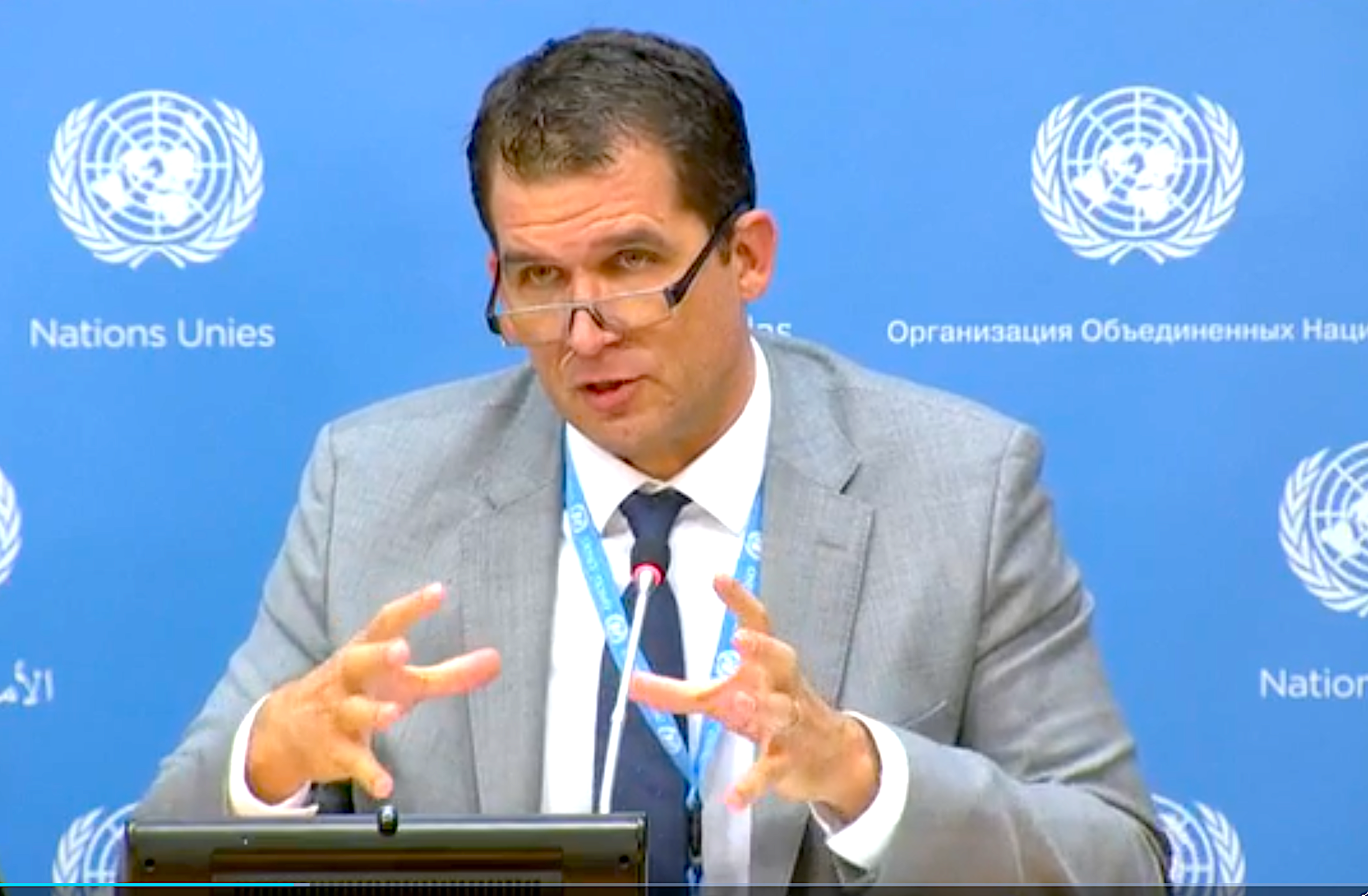
Nils Melzer. (UN Photo)
On Nov. 27, 2019, Melzer gave a talk at the Brandenburg Gate in Berlin to dedicate a sculpture by the Italian artist Davide Dormino. Figures of Edward Snowden, Julian Assange and Chelsea Manning, cast in bronze, stood on three chairs. A fourth chair, empty, was next to them inviting others to take a stand with them. The sculpture is called “Anything to Say?” Melzer stepped up onto the fourth chair, the hulking edifice of the U.S. Embassy off to his right. He uttered the words that should have come from organizations like PEN America:
“For decades, political dissidents have been welcomed by the West with open arms, because in their fight for human rights they were persecuted by dictatorial regimes.
Today, however, Western dissidents themselves are forced to seek asylum elsewhere, such as Edward Snowden in Russia or, until recently, Julian Assange at the Ecuadorian embassy in London.
For the West itself has begun to persecute its own dissidents, to subject them to draconian punishments in political show trials, and to imprison them as dangerous terrorists in high-security prisons under conditions that can only be described as inhuman and degrading.
Our governments feel threatened by Chelsea Manning, Edward Snowden, and Julian Assange, because they are whistleblowers, journalists, and human rights activists who have provided solid evidence for the abuse, corruption, and war crimes of the powerful, for which they are now being systematically defamed and persecuted.
They are the political dissidents of the West, and their persecution is today’s witch-hunt, because they threaten the privileges of unsupervised state power that has gone out of control.
The cases of Manning, Snowden, Assange and others are the most important test of our time for the credibility of Western rule of law and democracy and our commitment to human rights.
In all these cases, it is not about the person, the character or possible misconduct of these dissidents, but about how our governments deal with revelations about of their own misconduct.
How many soldiers have been held accountable for the massacre of civilians shown in the video ‘Collateral Murder’? How many agents for the systematic torture of terror suspects? How many politicians and CEOs for the corrupt and inhumane machinations that have been brought to light by our dissidents?
That’s what this is about. It is about the integrity of the rule of law, the credibility of our democracies and, ultimately, about our own human dignity and the future of our children.
Let us never forget that!”
The tenuous return to power of the Democratic Party under Joe Biden, and the specter of a Republican rout of the Democrats in the midterm elections next year, along with the very real possibility of the election in 2024 of Donald Trump, or a Trump-like figure to the presidency, has blinded human rights and press groups to the danger of the egregious assaults on freedom of expression perpetrated by the Biden administration.
The steady march towards heavy handed state censorship was accelerated by the Obama administration that charged ten government employees and contractors, eight under the Espionage Act, for disclosing classified information to the press. The Obama administration in 2013 also seized the phone records of 20 Associated Press reporters to uncover who leaked the information about a foiled al-Qaida terrorist plot.
This ongoing assault by the Democratic Party has been accompanied by the disappearing on social media platforms of several luminaries on the far right, including Donald Trump and Alex Jones, who were removed from Facebook, Apple, YouTube. Content that is true but damaging to the Democratic Party, including the revelations from Hunter Biden’s laptop, have been blocked by digital platforms such as Facebook and Twitter.
Algorithms have since at least 2017 marginalized left-wing content, including my own. The legal precedent set in this atmosphere by the sentencing of Assange means that anyone who possesses classified material, or anyone who leaks it, will be guilty of a criminal offense.
The sentencing of Assange will signal the end of all investigative inquiries into the inner workings of power. The pandering by press and human rights organizations, tasked with being sentinels of freedom, to the Democratic Party, only contributes to the steady tightening of the vice of press censorship.
There is no lesser evil in this fight. It is all evil. Left unchecked, it will result in an American species of China’s totalitarianism capitalism.
Chris Hedges is a Pulitzer Prize–winning journalist who was a foreign correspondent for 15 years for The New York Times, where he served as the Middle East bureau chief and Balkan bureau chief for the paper. He previously worked overseas for The Dallas Morning News, The Christian Science Monitor and NPR. He is the host of the Emmy Award-nominated RT America show “On Contact.”
This column is from Scheerpost, for which Chris Hedges writes a regular column.
